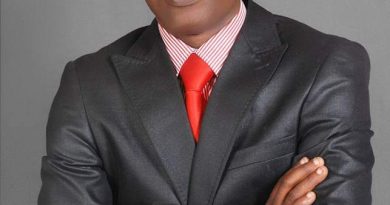Coventry vows inclusive leadership as IOC’s first African and female President
HARARE – IOC president-elect Kirsty Coventry says she will lead not with authority but with consensus, grounded in values learned from her upbringing in Zimbabwe. “I’ve always had incredible people around me to keep me grounded and humble,” she said.
“Growing up in Zimbabwe played a huge role,” Coventry said during her first major media appearance since her election. “It’s a small community in many ways. We’re a big country geographically, but we’re just 15 million people, and we really lean on each other.”
“I think that kind of upbringing, maybe a bit more sheltered, surrounded by strong values and close-knit support, helped me understand the importance of having grounded, humble, genuine people around me. And it’s those people who’ve consistently reminded me of where I come from. That’s been one of the most powerful influences throughout my journey.”
Speaking candidly to international journalists via Zoom during a virtual media roundtable, Coventry projected a clear sense of the leadership style she intends to bring to the IOC when she officially takes office on Olympic Day, 23 June 2025.
“In both my personal and professional career, I’ve always had incredible people around me to keep me grounded and humble; those are people whom I will continue to keep around me,” she said.
Coventry, 40, vowed to lead not through hierarchy, but through collaboration and shared values. “Values are at the core of our daily business, they’re incredibly important in today’s communities, and I hold this very close to my heart.”
She confirmed that her first act as IOC President will be to host a two-day workshop immediately after the IOC Session on June 23–24. “I’ve invited the IOC members to stay two extra days so that I can really hear what is on their mind and what they see as our opportunities and what they may see as our challenges,” she said.
“This is the first point in a longer consultation process with all stakeholders, including yourselves as media, where we’ll create another round table where I’ll get to ask you all a bunch of questions. That will strengthen the Olympic movement, in a collaborative way.”
When asked by the New York Times about past remarks concerning challenges with “difficult men” during her time as an athlete in Zimbabwe, Coventry responded: “As athletes, we had a lot of pressure coming from different government officials in Zimbabwe, and you know, it was hard. To look at others and trying to say, I’m an athlete, I don’t believe in the politics in sport. I want to just focus on performing well,” she said. “Looking back now, it taught me a lot about how to work with people, how to be respectful of differing opinions and still move forward on a shared agenda.”
Throughout the conversation, Coventry repeatedly credited the women who inspired her — her grandmother, mother, coach, and sporting pioneers like Olympic champion Donna de Varona.
“My grandmother was a single mom for most of her life, with three kids, and both were just incredibly strong women who raised family,” she said. “My swim coach, Kim, who became a Division I coach while her husband was deployed overseas, with two very young kids, watching how she balanced that was inspiring.”
When asked by China Daily about how her African identity shaped her outlook, Coventry recalled a vivid childhood moment: “I can remember exactly where I was standing in my parents living room. I was still in my swimsuit feeling cold after swimming in the pool only to stand in front of the TV and watch divers compete. I would say that there’s never a dream too big. You know, where there is a will, there’s a way to achieve something.”
British journalist Jamie Gardner asked about the weight of being the first woman to lead the IOC. “It’s not just an exciting day,” Coventry said. “It’s a day with a lot of responsibility.”
The new IOC President also shared a humorous memory from her Olympic debut at Sydney 2000 — a wardrobe malfunction involving her first high-tech swimsuit and a helping hand from Australian legend Susie O’Neill. “I had one leg in, was struggling to get the other in, lost my balance completely, and toppled over. Then this amazing person next to me leans down to help, and as I look up, I realise… it’s Susie.”
Now, 25 years later, she will preside over Brisbane 2032.
Coventry closed by emphasising her desire to elevate underrepresented voices, particularly athletes from smaller countries.
“I come from a much smaller NOC, a developing country,” she said. “And I understand the challenges our athletes face. How do we close that gap? How do we ensure that athletes from all walks of life, if not with the same opportunities, at least have equal opportunities?”
Her two daughters, she said, are a daily reminder of why sport must evolve.
“They’re a daily reminder of our responsibility to keep sport relevant, and to listen, really listen, to what young people think is important. Kids are honest. And sometimes that’s a very good thing.”
As she prepares to assume office, Coventry signaled a future built on optimism, integrity and inclusion — from the pools of Harare to the heights of Olympic leadership.




